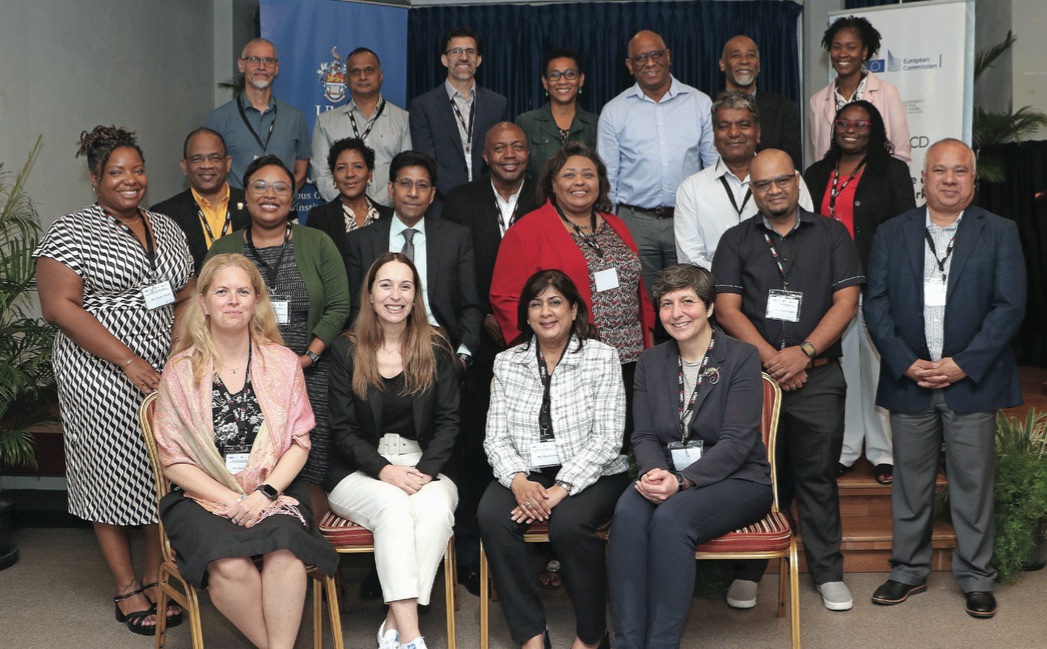Reclaiming Language, Memory, and Cultural Power

If language is a map of who we are, then World Creole Day 2025 at UWI St Augustine unfolded like a homecoming, drawing students, lecturers, artists, and cultural practitioners into the living heart of Patois and its Caribbean kin.
This year’s annual celebration transformed the Social Sciences Lounge into a site of learning, performance, and cultural exchange. The event was hosted by the Department of Modern Languages and Linguistics (DMLL) in collaboration with the Departments of Creative and Festival Arts (DCFA) and Behavioural Sciences (DBS), and the Alliance Française of Trinidad and Tobago.
The event opened with cultural showcases from the featured countries, highlighting their languages, food, music, dance, and histories. Presentations from Trinidad and Tobago, Haiti, Dominica, St Lucia, and Mauritius offered portraits of lived tradition, allowing visitors to hear greetings and expressions in different Creoles, observe movement styles, and witness performances that carry communal memory. Music and movement established a steady pulse for the afternoon. Steelpan, djembe, and acoustic drumming were woven into the programme to underline the interconnected rhythms that shaped Creole worlds. A Bèlè performance emphasised the dialogic nature of drum and dancer, highlighting how cultural practices channel history through the body. Spoken word, storytelling, and traditional songs offered further moments of connection, reminding attendees that language and performance travel together.The programme also offered perspectives on how Creole languages formed under different colonial, social, and demographic conditions. The sessions examined questions of language structure, transmission, stigma, and revival. Participants were invited to consider how Patois and other Creoles continue to influence place and family names, everyday vocabulary, and the prosody of local English varieties. The discussions stressed that Creole languages are systematic and expressive systems, not degraded forms of other languages.
The event opened with cultural showcases from the featured countries, highlighting their languages, food, music, dance, and histories.
Film screenings provided vivid examples of Creole storytelling. The Trinidadian French Creole short film Sèptant Lanné Ansanm from 2017 was shown alongside two films presented by the Alliance Française, Kabri I Manz Salad from Réunion Island and Bonnarien from French Guiana. These screenings opened space for comparative reflection on narrative strategies, humour, and the ways language shapes perspective.
Visual arts and craft broadened the conversation beyond words and sound. A display curated by the DCFA showcased mixed media, photography, and installation pieces that asked questions of ancestry, migration, and memory. The Creole Craft Market gathered local artisans whose work fused traditional technique with contemporary design. Textiles, beadwork, carved objects, and small sculptures offered tactile ways to engage with Creole heritage.
Beyond celebration, the event invited reflection on the future of Creole cultures. Attendees considered how innovation and respect for tradition might coexist, and how institutions such as The UWI can support community-led initiatives that centre linguistic justice.
The event also reaffirmed The UWI’s scholarly record on Creole studies. Past research and publications on Patois, including work from pioneers of Creole scholarship, provided context for the celebration and underscored the campus’s ongoing role in documenting and analysing Creole language and culture. Framed within that research tradition, World Creole Day functioned as both public outreach and a site for academic exchange.